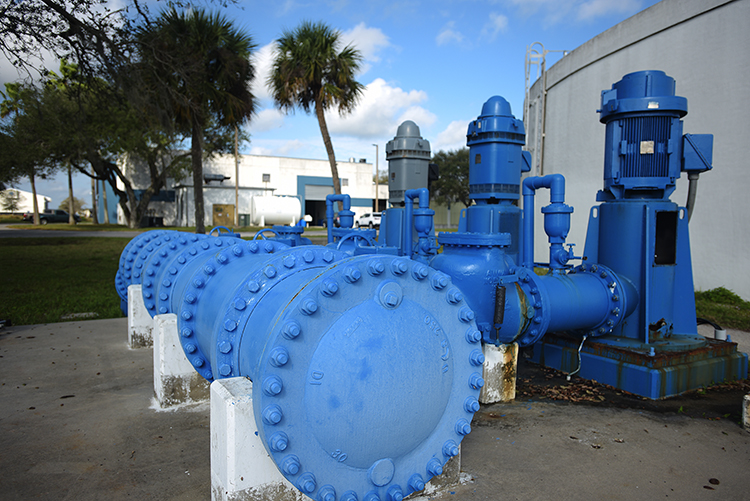
With the deadline only 15 months off for Indian River Shores to serve notice it intends to sever ties with Vero’s water utility, legal battles between the Shores and the City of Vero Beach have hit a stage where not much action is apparent.
Behind the scenes, legal teams are working on briefs addressing Florida’s Fourth District Court of Appeals as the Shores challenges a detrimental circuit court ruling in its breach of contract suit against Vero over reuse water irrigation rates.
Judge Janet Croom ruled in favor of Vero, holding that the city acted in accordance with state law. The Shores still believes Vero violated a 2012 franchise agreement promising to match Indian River County Utilities’ rates.
Attorney Bruce May, who heads up Holland and Knight’s Utilities Division in Tallahassee, has taken charge of the Shores’ appeal along with two of his associates. May headed up the legal team that represented the Shores both in state court and before the Florida Public Service Commission in matters related to Vero’s electric utility.
“The briefing in the state court appeal is expected to wrap up in October of this year.
Once those filings are complete, the Fourth District Court of Appeals will determine the timing of any oral argument or disposition,” May said.
The other piece of the Shores versus Vero legal battle in federal court is also at somewhat of a standstill, as the parties prepare for trial while the court ponders Vero’s arguments that the Shores lacks standing, and that the matter should not go forward. “In the federal case, the motion to dismiss is still pending. The matter remains scheduled for trial in the two-week trial period beginning January 30, 2023,” May said.
Meanwhile, Vero is moving forward with a comprehensive rate study and a plan to convert all its utility customers – inside and outside the city limits – to a single rate structure designed to cover the cost of constructing a new, state-of-the-art wastewater treatment and water reclamation plant at the Vero Beach Regional Airport, plus upgrading Vero’s system to comply with environmental regulations.
Initial estimates put those costs in the $70 million to $80 million range, but that does not necessarily take into account the current state of inflation, global supply-chain issues or the increased demand on labor and materials needed for construction of the new plant. The new rates, once approved, are expected to go into effect Oct. 1 for all Vero utility customers. Vero serves its own city residents, plus Indian River Shores and the barrier island south of Castaway Cove, which is unincorporated Indian River County.
Indian River Shores is challenging the validity of a 1989 agreement dividing the whole of Indian River County into two utility territories, and placing the Shores in Vero’s service area.
Ultimately, the Shores is fighting for the right to entertain competitive proposals from other water service providers to find the best long-term deal for its residents. Vero is trying to secure its customer base, and to defend its sovereign rate-making authority to plan for and finance needed capital projects, and to remove the sewer plant from its current location on the Indian River Lagoon.



